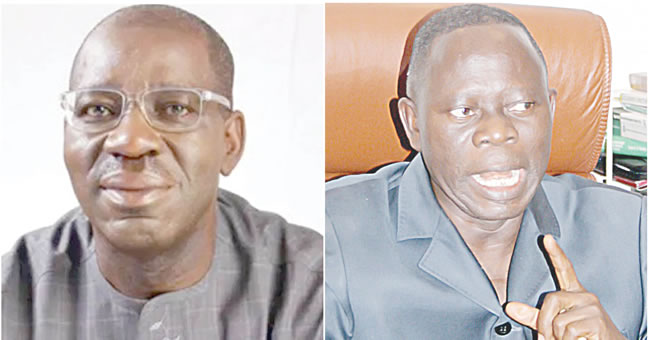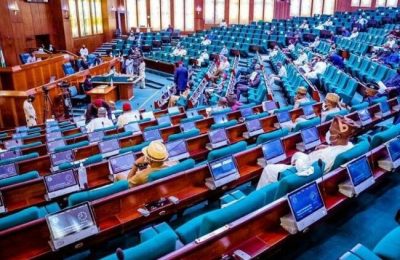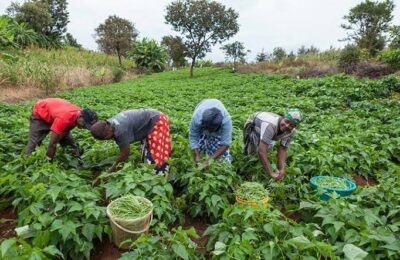‘SUYI AYODELE and IDAHOSA MOSES examine some issues that played out in Edo State during the February 25 presidential and National assembly election.
The Presidential and National Assembly elections held across the country on Saturday, February 25, birthed a new vista of political realignment in Edo State. But the new political order did not come easy. It was a sort of tsunami that swept off hitherto political lords. The outcomes of the elections, especially as they affected the political fortunes of the ruling Peoples Democratic Party (PDP) in the state, have left many wondering at the political sophistication of the Edo electorate.
The first time Edo electorate proved that they could be dynamic, if they chose to, was in the September 19, 2020 re-election bid of Governor Godwin Obaseki, who, after a prolonged fight with his erstwhile political godfather, Comrade Adams Oshiomhole, moved from the All Progressives Congress (APC) to the PDP. Against all permutations of the political dexterity of Oshiomhole, who was then the immediate past National Chairman of the APC and Obaseki’s predecessor, the outcome of the guber poll proved bookmakers wrong. Obaseki did not just win the election, he defeated Oshiomhole and his army of followers in 13 out of the 18 local government areas of the state. Oshiomhole, at that election, had the battle of his life as he struggled to win five out of the six council areas that make up his Edo North senatorial district. Even at that, Obaseki, riding on the shoulders of his deputy, Comrade Philip Shaibu, got over 40 percent of the votes in the zone.

But, barely three years after that feat, Obaseki was left with bad political injuries at the last Saturday general election. While in 2020, the governor won in all the seven local governments in his Edo South Senatorial district and added that of the five councils in the Edo Central zone, at the close of the last Saturday election, the governor could not boast of any council in the entire state. The question on the lips of every political watcher in the state has been: what happened?
Prior to the elections, actors of various political parties, particularly the now three dominant parties: the APC, the PDP and the Labour Party (LP) vowed to deliver bloc votes for their candidates across the three senatorial districts of the state. Interestingly, Governor Obaseki; the Secretary to the State Government (SSG), Osarodion Ogie, and the Chief of Staff to the governor, Osaigbovo Iyoha, all PDP members, hail from Edo South senatorial district. So, it would have been correct if anyone had suggested that the trio would influence the voting pattern in the district, which is the largest in terms of population and landmarks.
But the outcome of the polls put a lie to such a prediction. The trio did not just lose their voting units and wards, they lost their local governments and senatorial districts. The beneficiary of the political shift happened to be the hitherto unknown LP, whose presidential candidate, Peter Obi swept the poll and had a piggyback effect on the candidates for the National Assembly elections. It was an irony that the same people, who in 2020, mouthed ogbane (it is completed), a clause to assure Obaseki that he would complete his second term bid, turned around to shout omagba (it is not complete). This was, to a large extent, a reaction to the level of distrust between the governor and the common people, who ordinarily were not concerned with the political influence of the governor, the Secretary to the State Government and the Chief of Staff. The people staged a revolution, the effects which vibrated across the state. The people, while revolting against the maladministration of the APC and PDP at the federal and state levels, voted overwhelmingly for the presidential candidate of the Labour Party, Peter Obi.

Another factor that influenced the voting patterns in the last Saturday election is the resolve of the people to try alternative candidates other than the APC, PDP. From the voting patterns, the people were all out to ‘embarrass’ the sitting governor, who, in the last couple of months, had taken some actions that were considered anti-people. This is coupled with the unnecessary and avoidable crisis in the PDP family, believed to have been engineered by the governor, who after securing the buy-in of the PDP in 2020, decided to ‘chase away’ the ‘aborigine’ PDP members and shut them completely out of his government. Even those who decamped with him from the APC to the PDP were left in the cold, as they enjoyed no political patronage from the governor. This line of thought was aptly described by one of the governor’s allies on his Facebook page, who said he was highly embarrassed by the outcome of the voting in the senatorial district. So, the candidate of the Labour Party, Mr. Peter Obi was the bride of Edo South voters.

In Edo Central senatorial district, the voting pattern was slightly different as the people, prior to the election, vowed not to vote the outgoing Senator Clifford Odia for third tenure, and massively voted for the new entrant, Monday Okpebholo of the APC. The political arrangement in Esan Central rotates between the clans of Agbazilo and Okpebholo. The incumbent senator, Odia, is from Okpebholo and has served two terms. The calculation is that PDP would pick his candidate from the Agabzilo clan. But Obaseki insisted on Odia. The people, as payback, decided to settle for the APC candidate; thus, making it the first time since the beginning of this political dispensation, that PDP would lose the senatorial seat to another party. The state PDP internal crisis between the legacy group of Dan Orbih and Obaseki group, also played a significant role in the voting pattern of the people. While the people voted against PDP candidates, they voted massively for the APC senatorial candidate and Obi of LP for the presidential.
In Edo North Senatorial District, Oshiomhole’s factor was very visible in the voting pattern of the people. The people of the zone came out in large numbers out of their likeness for the former governor. That also had its own ripple effects on the other candidates of Oshiomhole’s party, as they rode on the back of the former labour man to victory. Though, not contesting, primarily, the election in the senatorial zone was a case of who controls Edo North politically between Comrade Adams Oshiomhole and the deputy governor of Comrade Philip Shaibu, a native of Jattu town in Etsako West Local Government Area of the state; the same council area as Oshiomhole. Shaibu, who was brought to politics by Oshiomhole, lost his ward to his estranged godfather..
As it stands, the PDP lost the three senatorial seats, lost the eight House of Representatives seats declared out of nine with the LP winning three and the APC winning the remaining five.
READ ALSO FROM NIGERIAN TRIBUNE








